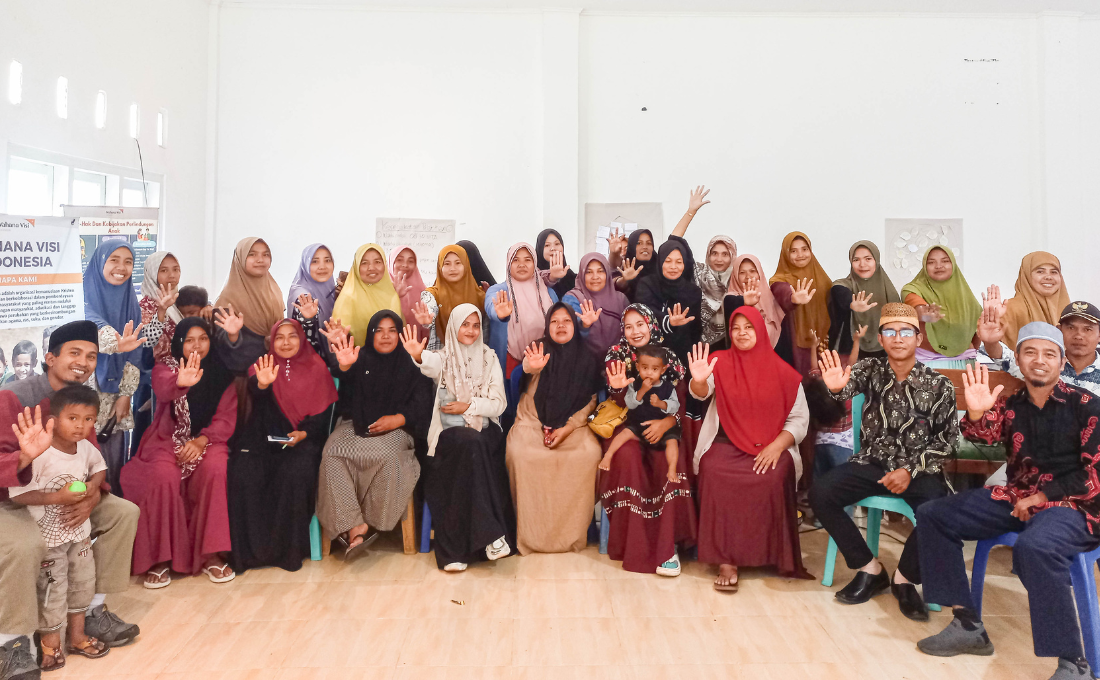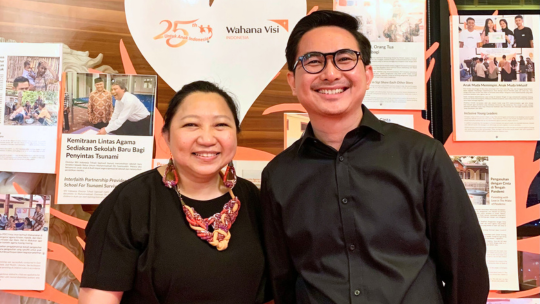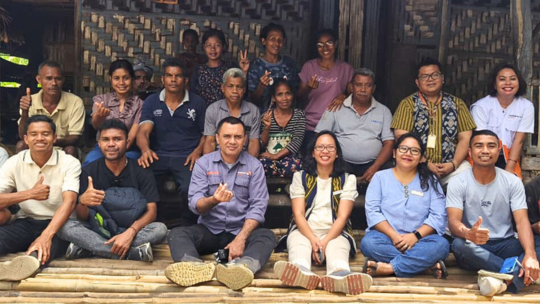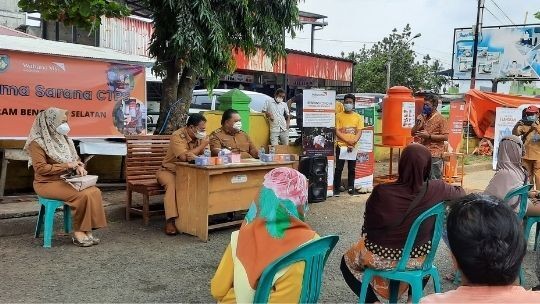Child Protection Starts at Home

According to SIMFONI PPA data from December 2022, the number of child violence cases in West Nusa Tenggara Province has been steadily increasing over the past three years. East Lombok, one of WVI's assisted areas, has the highest number of cases. Throughout 2022, there were 179 cases of child violence reported in East Lombok. These cases stem from low awareness of child protection, starting from parents, caregivers, families, to village officials. The assessments and baselines conducted by WVI show that only 3 out of 10 sponsored children in East Lombok acknowledge having a positive relationship with their parents. In other words, most children still live in families that practice violence, both verbal and physical.
Family transformation is one of the most important and crucial things for children in East Lombok to live more prosperous lives, free from all forms of violence. Parents, as the closest adults in every child's life, must become protectors and upholders of children's rights, not the other way around. Because when parents are faced with parenting that feels difficult and challenging, often parents instead turn into perpetrators of violence against children.
This can be overcome and prevented if families experience relationship recovery and develop insights into positive parenting. And it would be better if this change is initiated by religious leaders in the villages. Religious leaders are one of the stakeholders in the village. In addition to carrying out their role as spiritual leaders, religious leaders can also be role models in building relationships with others, including the smallest unit of a community, namely the family.
Ustadz Supardi, one of the religious leaders in a village in East Lombok, admits that the village community still applies traditional parenting patterns that are full of violence. Even though, such parenting patterns are actually not justified religiously. But when this parenting pattern that is rooted in customs and culture continues to roll and is not broken, then every parent in the village considers this to be what should be applied to their children.
"I myself with my own children also often use violence, both physical and verbal in educating children. However, since attending child protection socialization from WVI and bringing life skills materials to the Children's Playgroup, I have begun to feel a shift in my views on child-rearing practices," he admitted.
Ustadz Supardi is one of 13 religious leaders in East Lombok who have participated in a series of activities related to child protection and its application in parenting. He, who initially received this as a new idea, finally experienced a change in carrying out his role as a husband and father. When he carries out his role as a religious leader in the village, Ustadz Supardi feels the need to spread this to other parents.
"I was initially pessimistic that parents or caregivers would be interested in attending the Parenting with Love (PDC) workshop in the village. Previously, there had never been such activities in the community. In addition, many parents carry out their daily routines in the fields, becoming farm laborers, so it feels difficult if they have to attend workshops for three days in a row," said Ustadz Supardi, recounting his initiative to educate parents about PDC.
Ustadz Supardi's initial concerns about parental participation in the Parenting with Love (PDC) workshop were quickly dispelled when the first day commenced. The enthusiasm and engagement of the parents were evident throughout the three-day event, much to the delight of the facilitators, Ustadz Supardi, Ustadz Sahbudin, Ustadz Halil Hadiatman, and Ustadz Rusdi. The full support of the village government further enhanced the success of the workshop.
The parents, particularly the mothers, were particularly drawn to the new insights on nurturing and loving parenting practices. The three-day workshop culminated in the formation of Parent Support Groups (PSG). These groups provided a platform for parents to exchange ideas, discuss challenges, and reflect on positive changes in their parenting styles. Regular PSG meetings helped parents internalize the desired parenting patterns within their families.
Apriana, a 28-year-old mother who actively participated in the PDC workshop and PSG, shared her personal transformation journey. "We are very happy to be part of this activity. I have experienced positive changes in my parenting approach. I no longer hit or shout at my child. My relationship with my husband has improved as I have learned to manage my emotions and communicate effectively. The workshop was engaging and provided opportunities for parents to ask questions and share their perspectives. It felt like an Islamic study session focused on parenting," she recounted.
Ustadz Supardi's initiative and the enthusiasm of the parents successfully advocated for the village government's involvement. Recognizing the importance of child protection, the village government took concrete steps to address child violence by supporting PATBM (Community-Based Integrated Child Protection) activities in the village. The implementation of PATBM received funding of seven million rupiah from the village budget.
"PDC is the first program we have encountered that delves into child protection within the family in such depth. It even involves religious leaders as facilitators and pioneers. The village government will not remain silent. We will allocate village funds for child protection activities that can be managed by PATBM," concluded the Village Head, H. Lalu.
The old parenting practices have given way to a new era of nurturing and supportive families. Children are now experiencing the warmth of love and building positive relationships with their parents, families, and communities. This village in East Lombok stands as a testament to the power of empowering parents and communities to safeguard children's rights, starting from their own homes.
Author: Triyatmi Budiarsih (Field Facilitator Lombok Area Program)
Editor: Mariana Kurniawati (Communication Executive)



